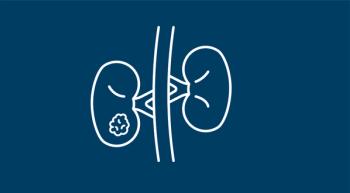
The FDA has launched a priority review of repotrectinib based on data from the phase 1/2 TRIDENT-trial.

The FDA has launched a priority review of repotrectinib based on data from the phase 1/2 TRIDENT-trial.

Phase 3 findings from the CLL12 trial support a watch-and-wait approach over systemic treatment with ibrutinib for patients with asymptomatic early-stage chronic lymphocytic leukemia.

FOLFOX was associated with lower rates or diarrhea and bowel dysfunction, but higher rates of fatigue, anxiety, nausea, and neuropathy, in data from the phase 2/3 PROSPECT trial.

The FDA has launched a priority review of fruquintinib as treatment for adult patients with previously treated metastatic colorectal cancer.

The phase 1/2 TRANSCEND CLL 004 trial met its primary end point by demonstrating that lisocabtagene maraleucel elicited responses in patients with relapsed/refractory chronic lymphocytic leukemia/small lymphocytic lymphoma.

Debi Fischer, MSW, BSN, BA, LCSW, RN, reviews key takeaways from a poster presented at the 2023 Oncology Nursing Society Congress.

What are the implications of new approvals for oncology nurses specializing in melanoma?

Talazoparib reduced the risk of progression or death by 55% in patients with metastatic castration-resistant prostate cancer and homologous recombination repair gene alterations.

Brenda Martone MSN, ANP-BC, AOCNP, discusses the safety data from the phase 3 ARASENS trial.

The FDA has granted blinatumomab full approval for patients with minimal residual disease–positive B-cell acute lymphoblastic leukemia.

Wilderness therapy is a nontraditional form of therapy that uses components of exposure to outdoor activity and mental health treatment.

AnnMarie Walton, PhD, MPH, RN, OCN, CHES, FAAN, discusses the limitations of plastic-backed pads in inpatient oncology units.

Second-line treatment with CDK4/6 inhibition was associated with fewer toxicities and drug costs than frontline CDK4/6 inhibitor treatment—although progression-free survival and overall survival outcomes were similar.

The PARP inhibitor talazoparib has been approved in combination with enzalutamide for the treatment of adult patients with homologous recombination repair gene–mutated metastatic castration-resistant prostate cancer.

The rates of treatment discontinuation were higher with enzalutamide and apalutamide than with darolutamide for patients with non-metastatic castration resistant prostate cancer.

Lauren Mahon, MSN, FNP-BC, outlines nursing considerations with approved PARP inhibitors.

Frontline chemoimmunotherapy was associated with improved median overall survival, compared with chemotherapy alone, in patients with advanced non–small cell lung cancer.

Adverse experiences, such as smoking and experiencing physical abuse, do not necessarily decrease the frequency of colorectal cancer screenings.

Elizabeth R. Cullen, MSN, ARNP, talks severe oral mucositis management for patients with locally advanced head and neck cancer.

Maintenance bevacizumab plus durvalumab and olaparib improved progression-free survival in patients with HRD-negative advanced ovarian cancer.

The median progression-free survival with atezolizumab to cabozantinib was 10.6 vs 10.8 months with cabozantinib alone.

Oncology nurses do not have to be in positions of authority to demonstrate great leadership.

Glofitamab has received accelerated approval for the treatment of patients with relapsed or refractory diffuse large B-cell lymphoma, not otherwise specified, or large B-cell lymphoma arising from follicular lymphoma.

Patients with relapsed/refractory multiple myeloma treated with elranatamab following any prior BCMA-directed therapy achieved an overall response rate of 46%.

Amanda McKaig, BSN-RN, OCN; and Alyssa Ridad, BSN-RN, OCN, discuss how Ryan’s Law has changed their practice and how oncology nurses have responded to the changes.

Omitting radiotherapy did not compromise overall survival rates for patients with primary mediastinal B-cell lymphoma.

Patients with ESR1 mutations who received 12 months or more of prior treatment with a CDK4/6 inhibitor achieved a median progression free survival of 8.61 months with elacestrant compared with 1.91 months for those given standard therapy.

Heather Niccum Haag, BSN, RN, CCRN, shares how her institution improved patient education with the treatment belzutifan.

Patients with HER2-positive, metastatic colorectal cancer derived clinical benefit from a 5.4 mg/kg dose of trastuzumab deruxtecan.

Sabrina Banegas, RN, BMT-CN, highlights the value of improving antibiotic administration times for patients undergoing bone marrow transplant.